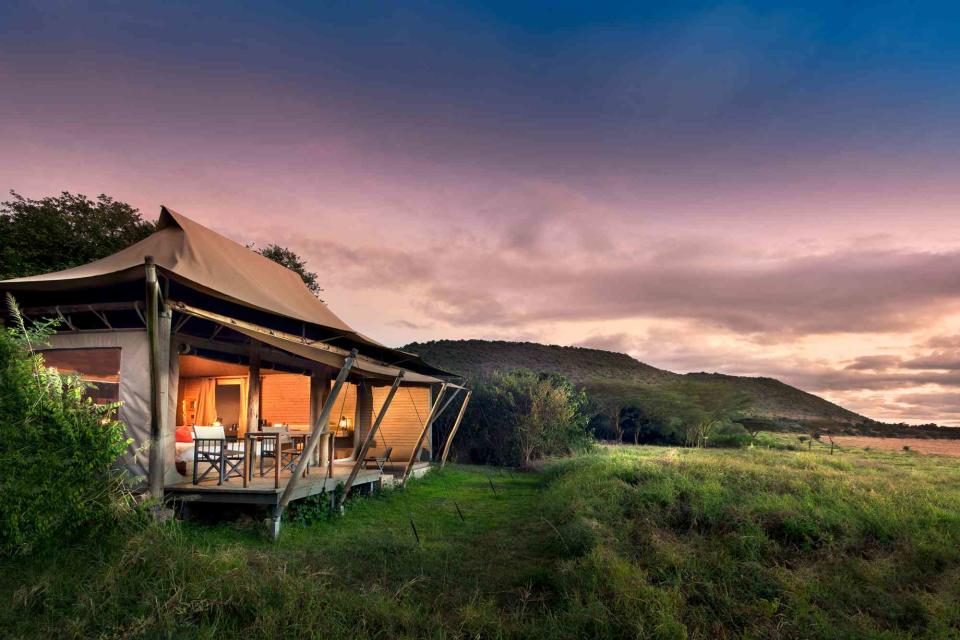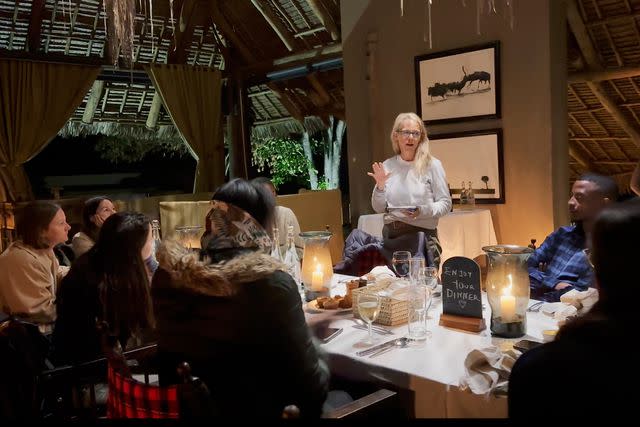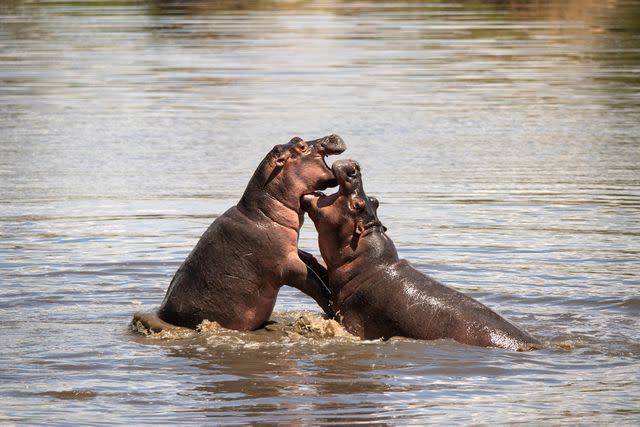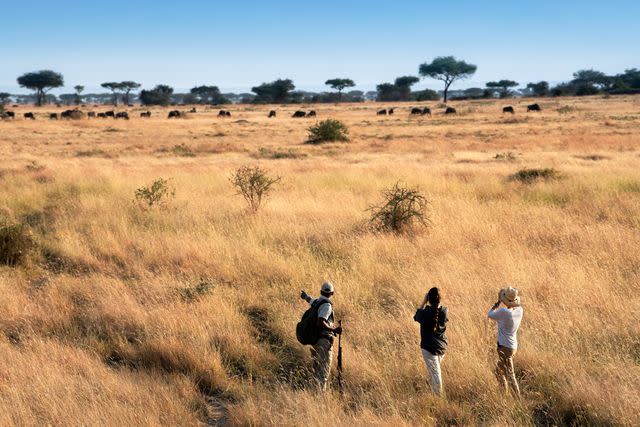This 'Masterclass' in East Africa Might Be the Most Meaningful Way to Take a Safari
Tours that educate visitors on the business of conservation offer a glimpse of the future of safari travel.

Courtesy of andBeyond
A tent at Kichwa Tembo Tented Camp, in Kenya.On a deck overlooking a hippo-crowded river in northern Tanzania, I was one of a small group of adventurers thumbing through workbooks while drinking tea and snacking on slices of cake. It was mid-afternoon at andBeyond’s Grumeti Serengeti River Lodge, but rather than getting ready for a game drive, as visitors might normally be doing at this time of day in the Serengeti, we were settling in for class.
Our instructor was Sue Snyman, director of research at the School of Wildlife Conservation at African Leadership University (ALU), and she was laying out the idea behind our immersive, six-day course: “How do we use natural resources in a way that is sustainable, so that everyone benefits?” she asked, smiling as the grunts of hippos lent a distinctive soundtrack to our gathering. “This is not going to be about sitting in a classroom and having lectures; this is going to be interactive.”
You can say that again.

Courtesy of andBeyond
Sue Snyman leads a WILDeconomy Masterclass at Kichwa Tembo.Snyman’s talk set the tone for my weeklong trip to Kenya and Tanzania. I was attending the first-ever WILDeconomy Masterclass — an innovative, insider look at where the safari industry is headed. Devised by the outfitter andBeyond in partnership with ALU, the Rwanda-based higher-learning institution, the program aims to introduce travelers to some of the pressing issues at stake in Africa’s wild places.
The program, which andBeyond plans to run again in November, delivered all the expected safari moments, including daily game drives and stays at both Grumeti Serengeti River Lodge and Kichwa Tembo Tented Camp, in Kenya. On one excursion, we spotted a lioness with her three cubs and, later, a hyena cuddling her pup. Another day, we spied elephants in the distance before returning to the lodge for a dinner of lamb curry under the stars.

Courtesy of andBeyond
Two hippos in the river near andBeyond Grumeti Serengeti River Lodge.The real distinction, though, was the opportunity to learn about big issues such as tourism’s impact on land use, carbon-trading projects, and — perhaps the most hot-button of all — hunting. The approach represents a new frontier in high-end safari tourism, as well-informed, affluent travelers look for more immersive itineraries.
Snyman had brought along two of her students as well as the institution’s latest research. “We want to show that conservation and economic development are not mutually exclusive,” Snyman said at one session. “There’s this concept that they just don’t work together — but they can.”
Our group, all seasoned safari-goers, debated the topics as if we were hashing out the Paris Agreement. On a visit to Lake Victoria, we chatted with a fisherman about the challenges his industry faces. He earns a living on the water but, as Snyman told us, unlicensed and unregulated fishing costs the country $40 million in unrealized tax revenue, lost earnings, and depleted fish stocks.
A few days later, in the Masai Mara, we trekked through the Nyakweri Forest. We stopped for lunch beneath a canopy of East African olive and greenhart trees, the perfect setting in which to talk about the pros and cons of carbon trading. Should foreign polluters be able to offset emissions by investing in carbon-capture projects in Africa, or are these projects just another way richer nations can take advantage of the continent’s resources?

Courtesy of andBeyond
A walking safari in Tanzania, near andBeyond’s Grumeti Serengeti River Lodge.Perhaps the most interesting perspectives came from the ALU students I met. “Tourists see the entire economy being built around animals seen on safari,” said Tshepiso Masilonyane, a Botswanan studying conservation. That represents a one-dimensional view of the wildlife economy, he said, that ignores the value of ranch and farm animals, to say nothing of those that are legally hunted. It’s a fresh perspective — and one informed, in part, by the challenges wrought by COVID-19. (By one estimate, Tanzania’s travel sector shrank by roughly half in 2020, a loss of more than $3 billion.)
The future of tourism to these wild places is still in flux, but debating the possibilities deep in the wilderness made the conversations all the more meaningful. If travelers don’t commit to doing something, I wondered, who will?
andBeyond hosts six-night WILDeconomy Masterclass trips, which start at $9,885 per person, all-inclusive.
A version of this story first appeared in the March 2023 issue of Travel + Leisure under the headline “The Inside Track.”
For more Travel & Leisure news, make sure to sign up for our newsletter!
Read the original article on Travel & Leisure.

